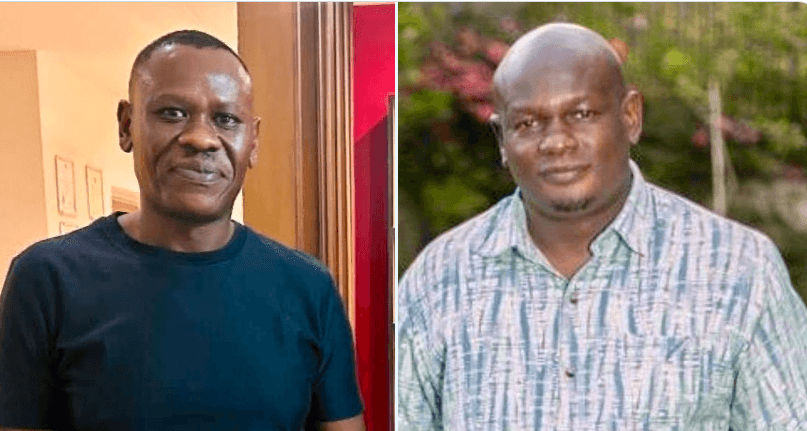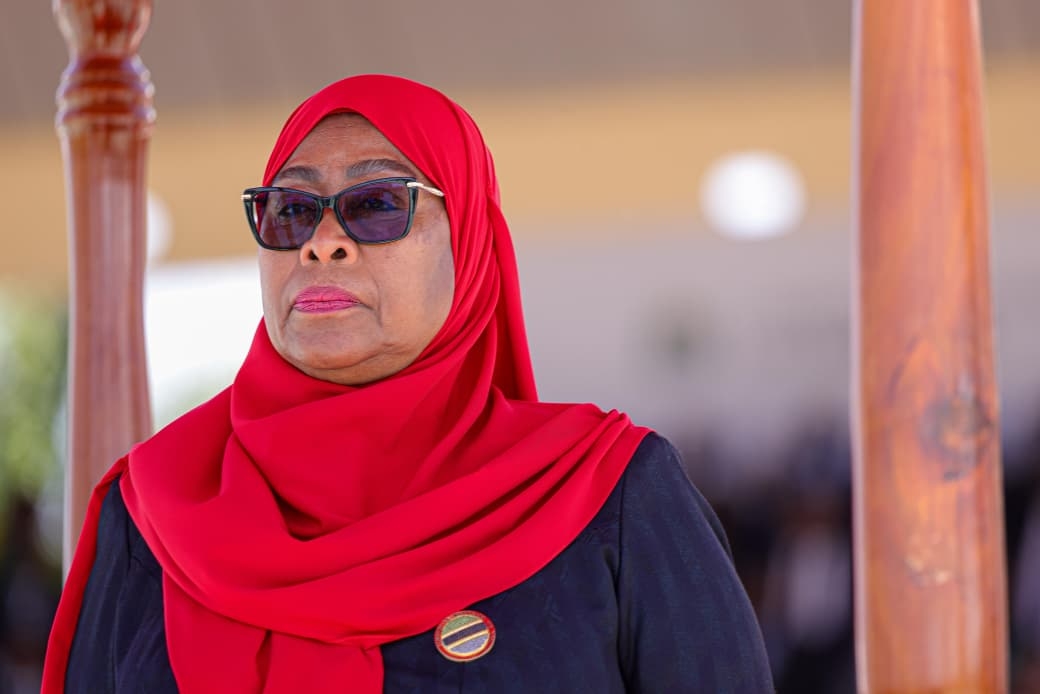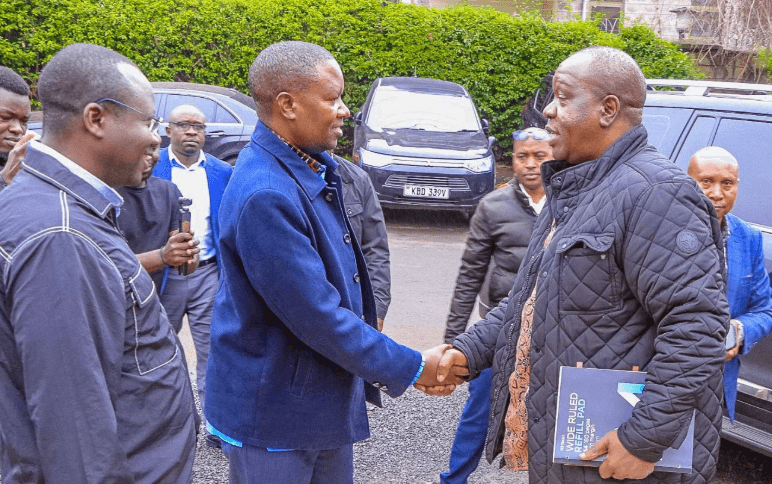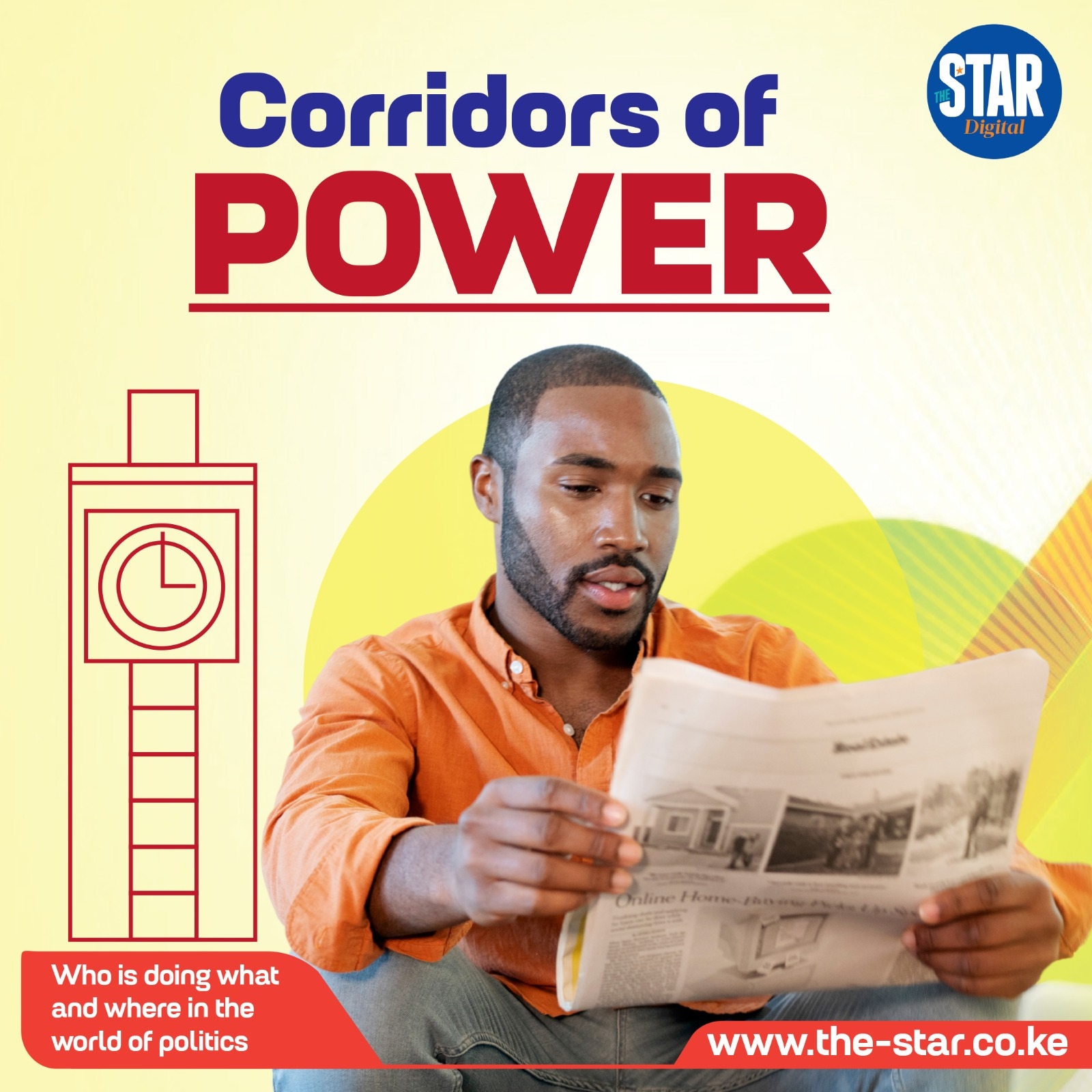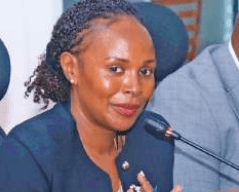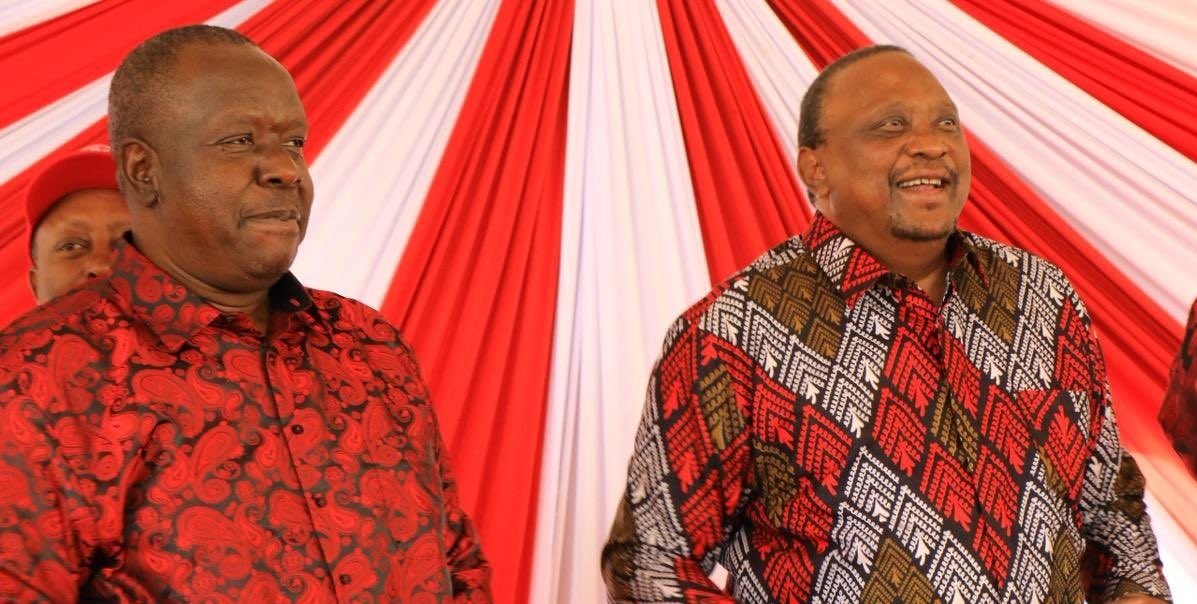
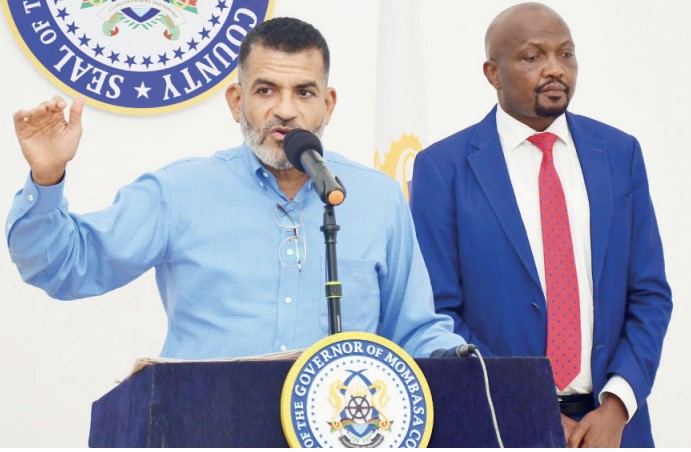 Mombasa Governor Abdulswamad Nassir with President William Ruto’s economic advisor Moses Kuria at Nassir’s office in Mombasa county on Thursday /BRIAN OTIENO
Mombasa Governor Abdulswamad Nassir with President William Ruto’s economic advisor Moses Kuria at Nassir’s office in Mombasa county on Thursday /BRIAN OTIENO
Mombasa Governor Abdulswamad Nassir has backed President William Ruto’s assertion that no one was forced to sign the medical equipment deal.
He said not everything the government introduces should be looked at with suspicion.
Nassir said Mombasa government did not sign the National Equipment Service Programme (NESP) deal.
“I have seen media reports claiming counties were forced into signing the deal. Mombasa County is one of the counties that did not sign the deal.Why is someone saying Mombasa was forced to sign it?” he asked.
The NESP seeks to supply medical equipment to county governments.
On Thursday, Ruto said counties were not forced into signing the deal with suppliers, saying all those who signed did so voluntarily.
Seven suppliers are involved. They supply the equipment and are paid by counties according to usage.
“You would be a fool to be forced to sign the wrong thing and then come and talk about it,” Ruto said at the Kilifi International Investment Conference.
He said the procurement process to get the seven suppliers was done regularly.
Ruto said there will be no room for corruption and fraud in the programme and in Social Health Authority.
“As one of the largest counties in terms of medical infrastructure, there is no one who was coerced, forced or told there will be punitive measures if they fail to take the equipment,” Nassir said.
“And for the avoidance of doubt, this was a decision made at the summit. A decision at the summit involves all governors, the Auditor General, Controller of Budget, the President, and, at his ( the President’s) pleasure, Cabinet as well.”
“At the summit, it was collectively decided that there be a system for one singular unit of advertising for purposes of economies of scale, not for purposes of enforcing,” the governor said.
He said NESP is meant to save counties the cost of buying expensive medical equipment. Nassir said Mombasa county is working hard to register as many residents as possible into SHA.
Mombasa has a population of about 1.2 million people, according to the last census, but only about 200,000 people are registered.
This represents about 18 per cent. Ruto’s economic advisor Moses Kuria said the ideal SHA uptake should be about 70 per cent now. Nassir said last year, some 1.9 million people sought treatment in Mombasa health facilities, meaning patients from outside the county also visit the hospital.
The governor acknowledged the challenges facing SHA calling for a quick resolution.
“When a child is born, they will first kick their legs before attempting to sit. They will then start crawling, attempt to walk and fall several times, before they can comfortably run,” he said.
“Next week, we will commence mass registration after addressing the technological problems that have been identified."
Nassir said the county will initiate a sponsorship programme to benefit indigents and those who cannot afford to pay for SHA.
Kuria said Mombasa is one of the counties which have embraced the Taifa Care programme.
Kuria said they have changed tact and are now going to the grassroots to solve problems.
“Like the President said, there are many evil spirits. And we will no longer exorcise the spirits from Nairobi. We will go to all places to ensure all the teething problems are solved,” he said.


